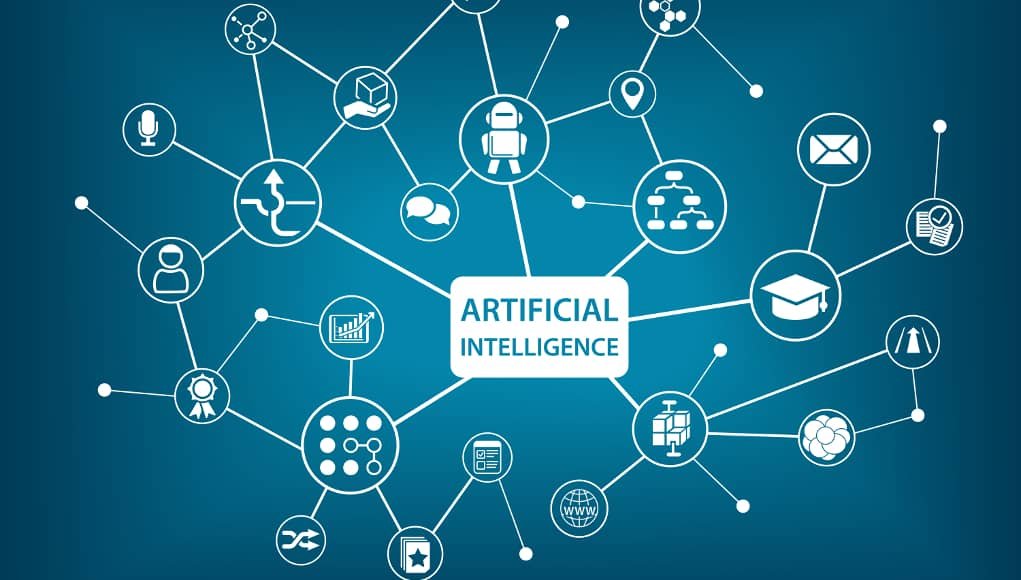Artificial Intelligence (AI) is no longer just a buzzword in the tech industry; The Role of AI Tools has become a vital asset for businesses looking to stay ahead in a competitive market. AI tools are revolutionizing how organizations manage workflows, make decisions, and interact with customers, driving productivity and fostering innovation across industries.

The rise of AI tools has been exponential, with more businesses adopting these technologies to streamline operations and reduce inefficiencies. According to a 2023 PwC report, 86% of executives believe AI is already mainstream in their operations, and this adoption rate is only expected to increase in the coming years.
But what exactly are AI productivity tools, and how can they benefit your business? Simply put, AI productivity tools are software solutions powered by artificial intelligence that automate tasks, analyze data, enhance decision-making, and improve overall workflow efficiency. Whether it’s processing large datasets, automating repetitive tasks, or creating content, AI tools are designed to optimize business processes, increase output, and accelerate innovation.
In this blog, we will explore the top AI tools for businesses, from those focused on data analysis and content creation to tools designed for process automation and customer management. We’ll also discuss the best practices for integrating AI into your business, the advantages and challenges of AI adoption, and how to select the right tools for your business needs.
Let’s dive in and see how AI can boost your productivity and drive business success.
1. Top AI Tools for Data Analysis
Data is one of the most valuable assets for businesses today. AI-powered data analysis tools can quickly process large datasets, uncover trends, and generate insights that can drive informed decision-making. Here are the top AI tools for data analysis:
Google Analytics
Google Analytics remains a staple for businesses tracking website performance, user behavior, and conversion rates. It now features AI-powered capabilities that can provide predictive analytics, helping businesses anticipate future customer behaviors. With its machine learning tools, Google Analytics identifies emerging trends, enabling marketing teams to act quickly on insights and optimize campaigns.
IBM Watson
IBM Watson is a powerful AI tool known for its ability to analyze massive datasets and extract actionable insights. It uses natural language processing (NLP) and machine learning to help businesses make data-driven decisions. Whether it’s for customer behavior analysis, financial forecasting, or operational efficiency, IBM Watson can provide valuable predictive insights that enhance business performance.
DataRobot
DataRobot automates the process of building and deploying machine learning models, making it easier for businesses to leverage AI for predictive analytics. The platform allows users with minimal data science experience to build custom machine learning models that can be used for everything from sales forecasting to fraud detection. This makes it a great option for businesses looking to get started with AI-powered analytics without needing deep technical expertise.
2. Top AI Tools for Content Creation
Content is key to engaging customers and driving conversions. AI tools for content creation can assist with generating high-quality articles, social media posts, marketing copy, and even product descriptions, saving businesses time and effort. Here are some of the most powerful AI tools for content creation:
ChatGPT
Developed by OpenAI, ChatGPT is an advanced language model that can generate human-like text. It’s particularly useful for businesses that need to produce large volumes of content quickly. From blog posts to customer service responses, ChatGPT can handle a wide variety of content needs. It allows businesses to automate content creation while maintaining a conversational tone and ensuring high quality.
Jasper AI
Jasper AI (formerly known as Jarvis) is an AI writing assistant that helps marketers, bloggers, and content creators produce SEO-optimized content in a fraction of the time. Jasper offers a wide range of templates for different content types—blog posts, emails, landing pages, and social media captions—allowing businesses to streamline their content workflows.
Copy.ai
Copy.ai leverages AI to assist in generating high-quality copy for marketing campaigns. Whether you need social media ads, product descriptions, or email marketing content, Copy.ai generates text that resonates with your target audience. By automating content creation, businesses can ensure they are consistently producing fresh content while saving time and resources.
3. Top AI Tools for Process Automation
Process automation is one of the most impactful applications of AI in business. By automating repetitive, time-consuming tasks, AI tools enable employees to focus on higher-value activities. Below are some of the leading AI tools for process automation:
UiPath
UiPath is a leader in robotic process automation (RPA), allowing businesses to automate mundane tasks like data entry, invoicing, and customer inquiries. It uses AI to streamline workflows across various departments, improving efficiency and reducing human error. For example, UiPath can automate tasks such as processing invoices, managing emails, and performing customer support functions, which significantly boosts operational efficiency.
Zapier
Zapier is an automation tool that connects over 5,000 apps and automates workflows between them. For instance, Zapier can automatically add new leads from a web form to your CRM or post new blog entries to your social media channels. The platform uses AI to predict workflows that save time, eliminate manual tasks, and create efficiencies in marketing, sales, and customer service.
Automation Anywhere
Automation Anywhere offers a cloud-native RPA solution that combines AI and automation to create smarter workflows. The platform automates everything from document management and data processing to customer engagement. Its AI-powered bots can analyze unstructured data, improving the overall accuracy and speed of tasks.
4. Top AI Tools for Customer Relationship Management (CRM)
AI-powered CRMs provide businesses with tools to manage customer interactions, optimize sales processes, and deliver personalized experiences. Here are top AI-driven CRM solutions:
HubSpot CRM
HubSpot’s CRM platform uses AI to automate sales tasks, track leads, and deliver personalized marketing content to prospects. With predictive lead scoring, HubSpot helps sales teams prioritize high-potential leads, making the process more efficient. HubSpot’s AI tools can also automate email campaigns and provide valuable insights into customer behavior, helping businesses nurture leads more effectively.
Salesforce Einstein
Salesforce Einstein is an AI tool embedded within Salesforce CRM that provides predictive insights and automates tasks like lead scoring, data entry, and forecasting. By utilizing machine learning, Salesforce Einstein helps businesses prioritize high-value opportunities, personalize customer communications, and streamline sales processes.
Zoho CRM
Zoho CRM features Zia, an AI assistant that helps businesses optimize their sales processes. Zia can predict sales trends, recommend the best time to contact customers, and provide intelligent insights into lead behavior. By automating administrative tasks, Zoho CRM helps businesses focus on building better customer relationships and closing deals faster.
5. Top AI Tools for Marketing Automation
AI tools for marketing automation help businesses run targeted campaigns, optimize ad spend, and improve conversion rates. Here are the top AI tools in marketing:
Marketo
Marketo, now part of Adobe, is a robust marketing automation platform that uses AI to personalize content, predict customer behaviors, and improve lead generation. With Marketo, businesses can automate email campaigns, content delivery, and nurture leads based on AI-driven insights. It also provides reporting features to help businesses track campaign performance and ROI.
Mailchimp with AI
Mailchimp’s marketing automation platform leverages AI to optimize email campaigns by personalizing content and predicting the best send times for individual recipients. AI also helps analyze campaign performance, allowing marketers to refine strategies for higher engagement and conversions.
Hootsuite
Hootsuite is a social media management platform that integrates AI to help businesses schedule posts, monitor social media activity, and optimize content for engagement. AI-powered tools like content recommendations and performance analytics allow businesses to refine their social media strategies and drive better results.
6. Top AI Tools for Project Management and Team Collaboration
AI tools also help businesses optimize project management and enhance team collaboration. These tools facilitate task assignment, project tracking, and communication, ensuring projects run smoothly.
Trello with AI
Trello is a popular project management tool that integrates AI to enhance team collaboration. With AI-driven task prioritization, automated updates, and progress tracking, teams can stay aligned and manage their workflows effectively. Trello’s integration with other AI tools like Butler allows teams to automate repetitive tasks and optimize project timelines.
Monday.com with AI Integration
Monday.com uses AI to automate workflows, assign tasks, and track project progress in real time. With AI-powered dashboards and reporting, teams can quickly identify bottlenecks and optimize performance. The platform also allows seamless collaboration by integrating with tools like Slack and Google Drive.
Asana
Asana helps teams stay organized with AI-driven project management features. The tool automates task assignments, sets deadlines, and provides personalized project recommendations. Asana’s AI-powered project templates streamline project workflows, helping businesses ensure timely completion of tasks.
7. Advantages and Disadvantages of AI Tools for Business
Before integrating AI into your business, it’s important to understand both the benefits and the challenges.
Advantages
- Increased Efficiency and Productivity: Automating routine tasks allows employees to focus on high-value activities, driving overall productivity.
- Improved Decision-Making: AI-powered analytics and insights help businesses make data-driven decisions in real time.
- Cost Savings: By automating manual processes, AI can reduce operational costs, such as labor and error-related costs.
- Enhanced Customer Experience: AI tools like chatbots and predictive recommendations allow businesses to offer more personalized services, improving customer satisfaction.
Disadvantages
- High Initial Investment: The upfront cost of implementing AI tools, including software, training, and system integration, can be significant.
- Integration Issues: Integrating AI tools with existing business systems may require substantial time and resources.
- Job Displacement: As AI tools automate more tasks, some roles may become redundant, requiring businesses to invest in upskilling employees.
- Data Privacy Concerns: Businesses need to ensure they comply with data protection laws, especially when AI tools process sensitive customer data.
8. Challenges of AI Productivity Tools
While AI tools offer significant productivity benefits, businesses face several challenges when implementing AI. These include:
- Data Quality: AI tools rely heavily on high-quality data. Poor or biased data can lead to inaccurate insights.
- Resistance to Change: Employees may be hesitant to adopt AI, fearing job losses or a lack of understanding of the technology.
- High Costs: The costs of AI tools, along with the need for training and implementation, can be prohibitive for smaller businesses.
- Integration with Existing Systems: Integrating AI tools with legacy systems can be a complex process that requires expertise and careful planning.
- Ethical Considerations: AI can inadvertently introduce biases or ethical concerns. Businesses need to ensure transparency and accountability in AI-driven decisions.
How to Choose the Right AI Tools for Your Business
Choosing the right AI tools depends on your business’s unique needs. Start by assessing which areas of your business could benefit from AI—whether it’s marketing, customer service, data analysis, or project management. Begin with tools that address your immediate needs and scale as your business grows.
Remember, the key to success with AI is not just adopting the latest tools but aligning them with your business goals and ensuring proper training and integration. With the right strategy, AI can transform your business, driving productivity and innovation to new heights.
Strategic FAQs
- How do I integrate AI tools into my business without disrupting operations? Start with pilot programs and use tools that integrate easily with your existing systems. Gradually expand the use of AI as employees get more comfortable.
- Are AI tools suitable for small businesses? Yes! Many AI tools offer flexible pricing models and are designed to help businesses of all sizes optimize workflows and improve efficiency.
- What is the ROI of implementing AI tools? ROI can be measured by tracking improvements in efficiency, cost reductions, and revenue growth. Be sure to assess key metrics such as time saved, cost savings, and customer satisfaction.
- How can AI tools improve employee productivity? AI tools automate routine tasks, allowing employees to focus on more creative and strategic aspects of their roles.
- What are the ethical implications of using AI in business? Businesses should prioritize transparency and fairness when deploying AI. It’s essential to monitor algorithms for biases and ensure data privacy.




